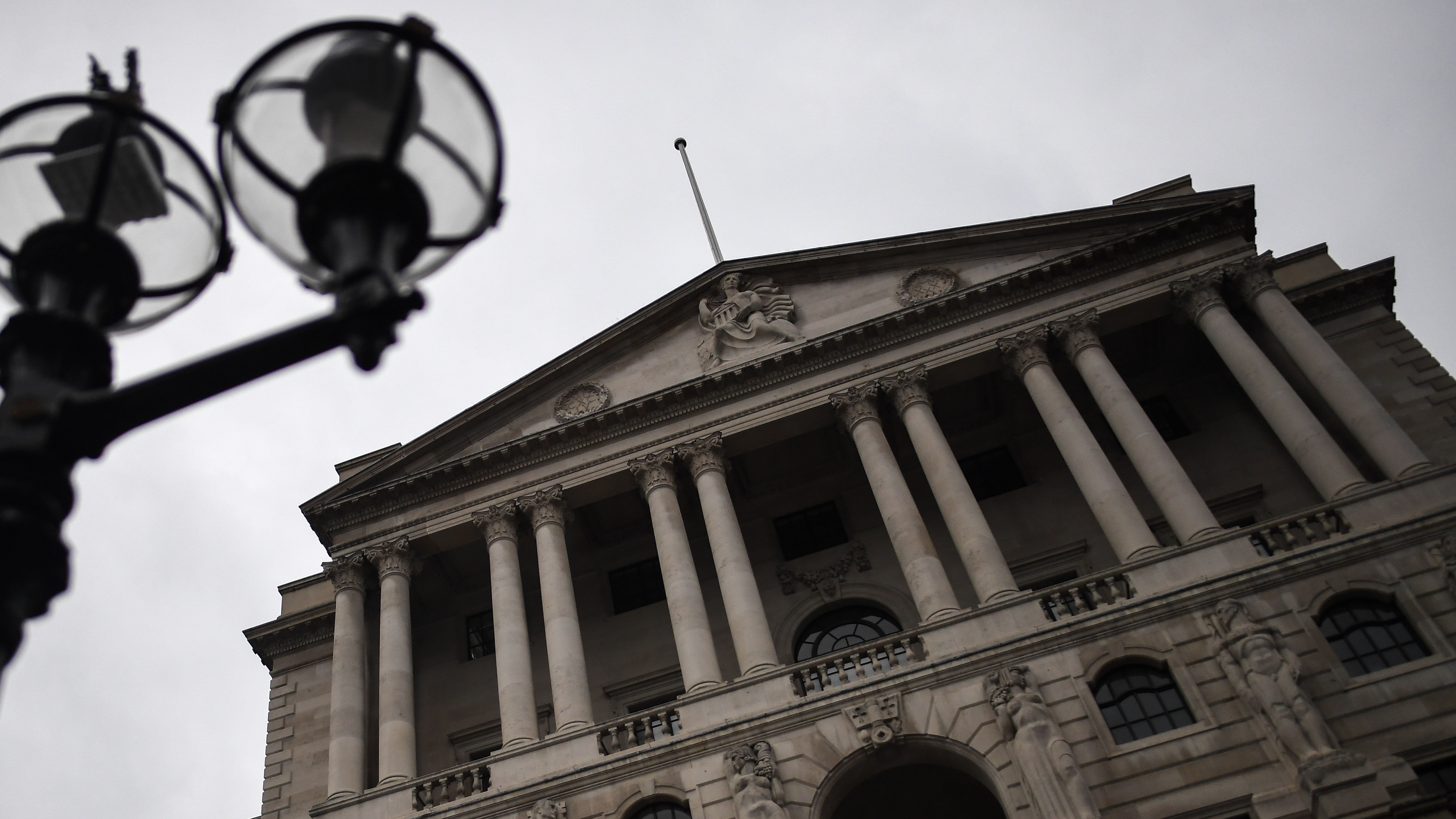Pension changes: what they mean for you
It’s now easier to control your pension pot, but should you buy an annuity or go a more flexible alternative?

A free daily email with the biggest news stories of the day – and the best features from TheWeek.com
You are now subscribed
Your newsletter sign-up was successful
Chancellor George Osborne announced major changes to the pensions system in March, including a big shake-up for annuities. He then announced further changes at the Conservative Party conference in September. The new rules are good news – they give new retirees more freedom to manage their pension pots as they wish. They also make it easier for pensioners to pass on their wealth to their families when they die. So if you’re planning to retire in the near future, there’s a big question you need to think about: should you still buy an annuity? Or should you go for one of the more flexible alternatives?
Firstly, I should say that these new rules mainly apply to people with ‘defined contribution’ pensions – these are pensions where you gradually save into a pension pot over your working life, rather than ‘defined benefit’ schemes where your employer agrees to pay you a specific income on retirement. That said, you can convert your defined benefit pension to a defined contribution one.
Traditionally most people have used their pension pots to buy an annuity when they retired. However, that is now changing. We’re currently in a transition period where new retirees already have a lot more freedom, but from April 2015, all of Osborne’s new rules will come into force. These give you basically three options for drawing money from your pot once you turn 55: you can take it all out as a lump sum; you can take some money out each year while the rest of your pot remains invested; or you can buy an annuity.
The Week
Escape your echo chamber. Get the facts behind the news, plus analysis from multiple perspectives.

Sign up for The Week's Free Newsletters
From our morning news briefing to a weekly Good News Newsletter, get the best of The Week delivered directly to your inbox.
From our morning news briefing to a weekly Good News Newsletter, get the best of The Week delivered directly to your inbox.
We’ll start with annuities. Imagine you have £100,000 in your pension pot and you’re about to retire. You could use that money to buy an annuity. You might then receive an income of around £6,000 a year based on current rates. That income will be paid until you die. You might think that £6,000 a year is a pretty small return, and that’s one reason why annuities have become so unpopular. Annuity rates have crashed alongside interest rates in recent years. If a healthy 65-year old man paid £100,000 for a conventional annuity in 1990, he’d have received roughly £15,000 a year for the rest of his life. That’s a far cry from today. Another problem is that annuities are mostly inflexible. Once you’ve bought an annuity, you’re stuck with it for life.
Buying an annuity also means you’ll probably have less money to pass onto your family when you die. If you leave your money in your pension pot, and you die before you’re 75, the money will be passed onto your beneficiaries tax-free. If you die after 75, your beneficiaries will pay 45% if they take the money as a lump sum. If they take the money as regular income, they will pay their marginal rate of income tax – 20% for many people. Under the old rules, a 55% ‘death charge’ would have been applied. But if you buy an annuity, you won’t be able to leave your pension pot to your beneficiaries. This crucial change in the taxation of pension pots when you die means that annuities have become a much less attractive option for many people.
That said, annuities still have one big virtue: they give you an income for life. If you live until 100, you could find that very useful. And not all annuities are the same. For example, you can buy an annuity with a guarantee period – so if you die two years after buying an annuity, an income will still be paid to someone else for a period of years. Under the new rules, that period could be as long as, say, 20 years.
It’s also worth noting that some lucky folk can benefit from a guaranteed annuity rate (GAR). So you might find your pension allows you to buy an annuity which pays out, say, 10% a year. That’s a much better deal than most people will get right now. Also, it’s worth remembering that you don’t have to use all of your pension pot to buy an annuity – you can take a 25% lump sum from your pot tax-free, then use the rest to buy an annuity.
A free daily email with the biggest news stories of the day – and the best features from TheWeek.com
Of course, you don’t have to buy an annuity once you’ve taken the tax-free lump sum. Under the new rules, you could take all the remaining money in one go. This would normally be done as an uncrystallised fund pension lump sum (UFPLS). If you’d rather take money out gradually, you are probably best to go into something called flexi-access drawdown (FAD). With a FAD, you can leave your pension pot invested in the stock market or other assets, and then take money as and when you need it.
But look out for the tax implications. Beyond the tax-free lump sum, you’ll have to pay income tax when you take out the money. So if you take the lot out in one go, you could end up paying the top rate of income tax on it (depending on the size of your pot). Where possible, you’d be better to try to make sure you incur as little tax as possible, but it all depends on your circumstances.
Clearly, the new pension rules have become more complex – but the good news is that you now have more freedom to manage your pension to suit your needs. Take advantage of it.
-
 Political cartoons for February 20
Political cartoons for February 20Cartoons Friday’s political cartoons include just the ice, winter games, and more
-
 Sepsis ‘breakthrough’: the world’s first targeted treatment?
Sepsis ‘breakthrough’: the world’s first targeted treatment?The Explainer New drug could reverse effects of sepsis, rather than trying to treat infection with antibiotics
-
 James Van Der Beek obituary: fresh-faced Dawson’s Creek star
James Van Der Beek obituary: fresh-faced Dawson’s Creek starIn The Spotlight Van Der Beek fronted one of the most successful teen dramas of the 90s – but his Dawson fame proved a double-edged sword
-
 Six ways to boost your finances in 2026
Six ways to boost your finances in 2026The Explainer It’s not too late to make a new year’s resolution to finally get organised money-wise
-
 The financial impact of returning to work in later life – should you 'unretire'?
The financial impact of returning to work in later life – should you 'unretire'?The Explainer Many people return to the workplace after retirement age, but what could it mean for your finances?
-
 State pension underpayments: are you getting the right amount?
State pension underpayments: are you getting the right amount?feature Hundreds of thousands of women may have received less than they were owed
-
 Early retirement: what is the ‘FIRE’ movement?
Early retirement: what is the ‘FIRE’ movement?feature Younger workers are aiming to quit the workforce early through extreme saving and investment
-
 How women can bridge the gender pension gap
How women can bridge the gender pension gapIn Depth New figures have shown the extent of the problem for women in retirement years
-
 How to plug the pension gap by buying National Insurance credits
How to plug the pension gap by buying National Insurance creditsfeature A temporary change in the state pension offers a ‘golden opportunity’
-
 Are UK pensions safe?
Are UK pensions safe?Today's Big Question Bank of England governor says its debt market support must end – but the multi-billion-pound scheme could be extended
-
 Pensions: time to end the triple lock?
Pensions: time to end the triple lock?In the Spotlight Ministers must decide whether to risk alienating older voters by ending guaranteed pension rises